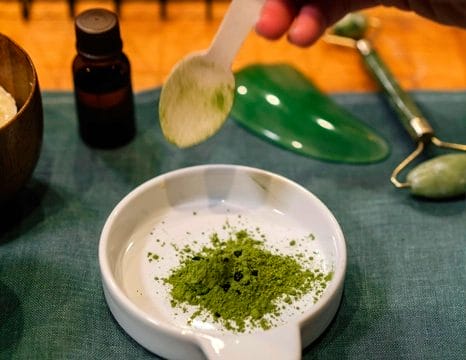Nourishing Spices and Herbs for Your Skin
Ayurveda is an ancient approach to wellness that believes your skin reflects your overall health. One vital component of Ayurvedic skin care is the consumption of herbs and spices, which can help rejuvenate the skin. Learn more about this health approach and discover three nourishing ingredients to help you achieve your skin goals.
What Is Ayurveda?
Ayurveda is a holistic system of medicine that started in India around 3,000 years ago. It teaches that everyone has life forces — or doshas — and everything is interconnected. An imbalance in one life force may lead to illness. The concept aims to boost disease resistance, reduce stress and create more balance in life.
Ayurvedic treatments include herbal remedies, massage, yoga and meditation to remove toxins, lower stress and restore balance. This wellness approach considers the sun to be the primary source of power and energy, and it is responsible for every bodily function. With over a billion people across the globe being deficient in vitamin D, embracing the sun as the solar-powered creatures we are is one of the best ways to soak in natural vitamins and healing benefits.
Can Ayurvedic Treatments Help Boost Skin Health?
There are three doshas — vata, pitta and kapha. Their characteristics are as follows:
-
- Vata: Dry, cracked skin, premature wrinkles, dark circles under the eyes, cracked lips, few breakouts and tiny pores
- Pitta: Fair, sensitive skin, acne-prone skin, moles, freckles, psoriasis, rashes, age spots
- Kapha: Normal skin, oily complexion, smooth skin, large pores, cystic acne, puffy eyes, thick skin
Your skin type may change depending on climate, season, age, diet, lifestyle and underlying health conditions. For instance, winter triggers vata imbalance due to cold weather that causes dry skin.
The key is identifying your dosha to make skin care more intuitive. You may have dual skin types, which means you possess the characteristics of two doshas.
3 Powerful Ayurvedic Herbs and Spices That Promote Radiant Skin
It’s common to see Ayurvedic treatments mixed with modern science — the old-world principles can help promote balance. In contrast, scientific applications can help boost skin’s good bacteria, keeping skin healthy and glowing. Discover three powerful Ayurvedic skin care herbs and how to incorporate them into your diet.
1. Turmeric
Turmeric helps curb inflammation and achieve a glowing complexion. Its antioxidant and anti-inflammatory properties may help control psoriasis flares, reduce acne scarring and speed up wound healing.
Ways to consume turmeric: Add turmeric powder to scrambled eggs, rice, roasted vegetables and soup. Simmer turmeric with honey and milk to make a comforting beverage. If you love creating smoothies, add a pinch of turmeric to your drink.
2. Cinnamon
Cinnamon contains phytochemicals and nutrients that have anti-inflammatory effects. It’s rich in antioxidants that help protect your skin from oxidative stress. Be careful of this powerful spice, though. Direct application on the skin may cause redness and irritation.
Ways to consume cinnamon: Add a pinch of cinnamon powder to spice up your oatmeal. Sprinkle onto other food options, such as apples, toast and pancakes. You can also boost your coffee or hot chocolate’s nutritional content with cinnamon powder.
3. Rosemary
This Ayurvedic herb is rich in anti-inflammatory and anti-microbial properties that can help you achieve a more radiant complexion. Rosemary has carnosic acid that helps protect the skin from UV damage, preventing premature skin aging. You can consume rosemary as is or apply it as an essential oil. Skin care products with rosemary extract can help strengthen your skin barrier, promoting cellular renewal.
Ways to consume rosemary: This herb is so versatile you can enjoy it in countless ways. Use loose rosemary leaves to create a heartwarming tea. Add it to flatbreads, sweet potato fries, chicken, steaks and pork roast.
Nourish Your Skin From the Inside Out
Natural Ayurvedic treatments offer a practical approach to skin care. Incorporating these ingredients into your diet will give you a nourished, healthier complexion.
(photo: mikhail nilov)

